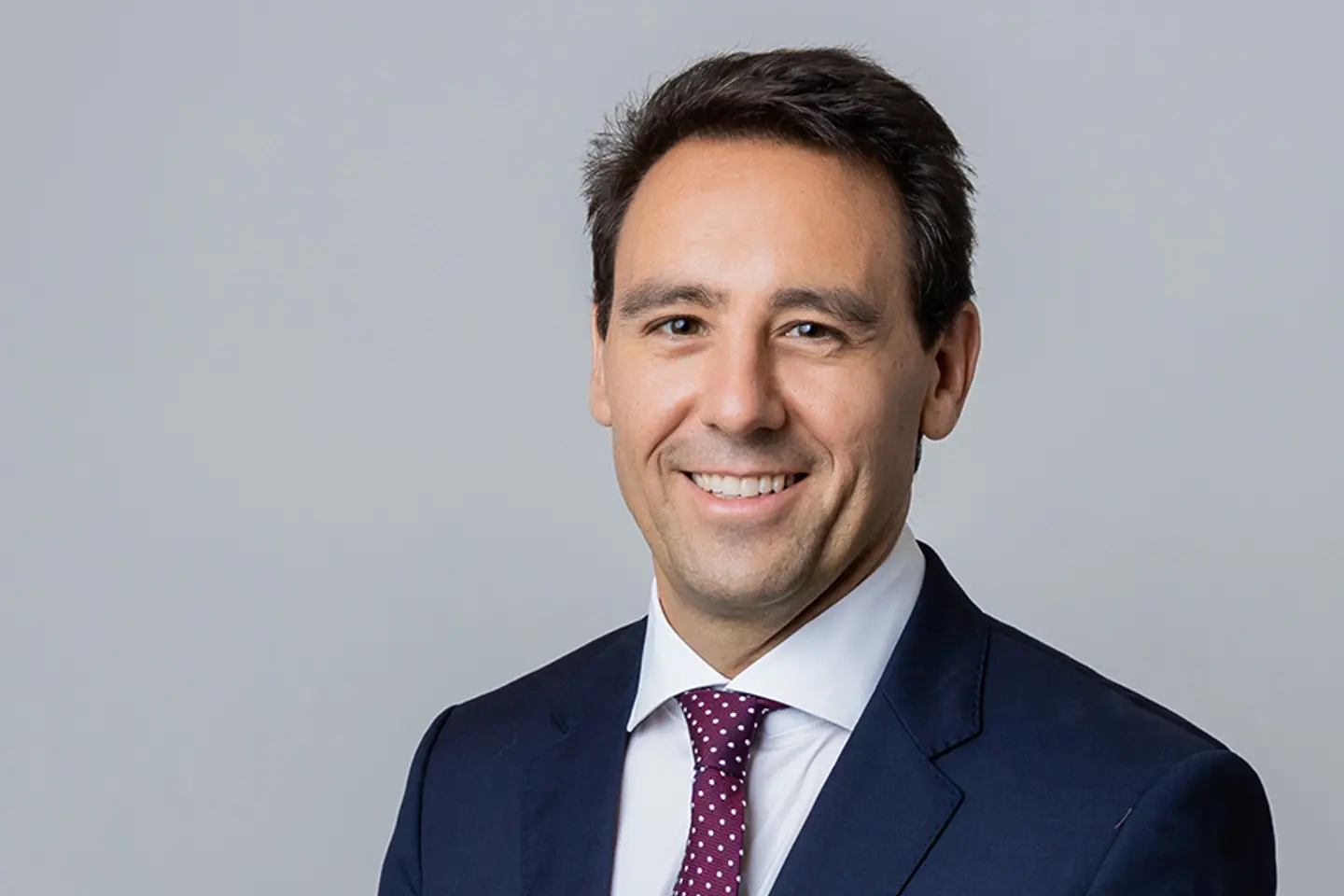
Bradley Kruger
Partner | Legal
Cayman Islands

Bradley Kruger
Partner
Cayman Islands
Services
We have the expertise to handle the most demanding transactions. Our commercial understanding and experience of working with leading financial institutions, professional advisers and regulatory bodies means we add real value to clients’ businesses.
Sectors
Our sector approach relies on smart collaboration between teams who have a deep understanding of related businesses and industry dynamics. The specific combination of our highly informed experts helps our clients to see around corners.
We have the expertise to handle the most demanding transactions. Our commercial understanding and experience of working with leading financial institutions, professional advisers and regulatory bodies means we add real value to clients’ businesses.
Legal
Corporate and Fiduciary
Consulting
Banking and Finance
Corporate
Dispute Resolution
Employment and Immigration
Intellectual Property
Investment Funds
Listing Services
Local Legal Services
Ogier Regulatory Consulting
Our sector approach relies on smart collaboration between teams who have a deep understanding of related businesses and industry dynamics. The specific combination of our highly informed experts helps our clients to see around corners.
Ogier provides practical advice on BVI, Cayman Islands, Guernsey, Irish, Jersey and Luxembourg law through our global network of offices across the Asian, Caribbean and European timezones. Ogier is the only firm to advise on this unique combination of laws.
Keep up to date with industry insights, analysis and reviews. Find out about the work of our expert teams and subscribe to receive our newsletters straight to your inbox.
Fresh thinking, sharper opinion.
We get straight to the point, managing complexity to get to the essentials. Our global network of offices covers every time zone.
About us
Corporate social responsibility (CSR)
Diversity, equity and inclusion
Information security
Innovation
Sustainability
Insight
06 September 2016
Cayman Islands
4 min read

Bradley Kruger
Team: Mark Santangeli, Angus Davison, James Heinicke, Joanne Huckle, Giorgio Subiotto, James Bagnall
ON THIS PAGE
RELATED
Introduction
On August 29, 2016, the Cayman Islands Monetary Authority (CIMA) released a Statement of Guidance on Professional Indemnity Insurance for Trust, Insurance, Mutual Fund Administrator, Securities Investment Business and Company Management Licensees and Directors. Statements of Guidance (SOGs) contain recommendations on how licensees should operate and represent a measure against which CIMA will assess compliance by licensees. This particular SOG sets out the minimum criteria that certain entities licensed by CIMA should follow for obtaining and maintaining professional indemnity (PI) insurance. Prior to finalising this SOG, CIMA consulted with the private sector and has published its feedback from the consultation process.
The SOG states that the purpose of PI insurance is to protect professional individuals and businesses that provide advisory and other services from legal costs and claims by third parties for damages arising from acts, omissions or breaches of professional duty. CIMA has stated that the components in the SOG are reflective of international best practice, whilst maintaining applicability to the specific regulatory needs of the Cayman Islands.
Scope
The SOG applies to the following types of entities licensed by CIMA (Licensees):
Other Cayman laws relating to PI insurance coverage take precedence over the SOG, particularly those that relate to the amount of cover. However, the current limit stipulations contained in those other Cayman laws are minimum coverage requirements only and CIMA expects that Licensees will conduct comprehensive PI insurance adequacy assessments in line with the SOG.
Key Features of the SOG
Sufficiency of PI Insurance Coverage
The SOG states that Licensees should at all times maintain adequate PI insurance and, where practicable, it should be provided by an insurer that is licensed in Cayman. CIMA also states in the SOG what it considers adequate in terms of the financial strength of the insurance provider (see below). The SOG should be implemented in proportion to the Licensee’s size, nature and complexity of its business, following a risk assessment of possible loss exposures on an individual client and aggregate basis. Accordingly, there is an acknowledgement that a "one size fits all" approach is not appropriate and that the PI insurance expectations may differ as between Licensees.
PI insurance should cover claims affecting the Licensee, its current or former officers and employees and third party agents, service providers or consultants who previously or currently work for the Licensee. (Alternatively, Licensees should ensure that such third party agents, service providers or consultants obtain their own adequate PI insurance cover.)
The SOG includes a non-exhaustive list of factors that should be considered in determining PI insurance adequacy, including:
The SOG notes that the limit and excess of PI insurance cover are fundamental items of consideration, but not the only important items, and continues by listing some factors for determining both an adequate limit of liability and a determination of excess.
Minimum Expectations for PI Insurance Cover
The SOG provides, as a general expectation, a list of minimum features for a Licensee’s PI insurance cover, including:
Licensees should maintain records of how their determinations of adequacy of PI insurance coverage are made and should review the adequacy of coverage regularly, at least every two years.
Financial Strength of Insurance Providers
Licensees should select insurers based on their financial strength and, where available, ratings by A.M. Best, Fitch, Moody’s or Standard & Poor’s, should be used. The SOG states that the minimum rating should be an A.M. Best rating of B+ or its equivalent and Licensees should monitor and review their insurer’s financial strength at least upon each renewal.
Certificates of PI Insurance
The SOG sets out guidelines for the content of PI insurance certificates, including the amount of coverage, the expiration date and any exclusions and/or limitations.
Other Appropriate Arrangements for PI Insurance
Licensees are permitted by the SOG to use appropriate alternative arrangements to PI insurance. If such alternative arrangements are being utilised, the Licensee should seek the written approval of CIMA for such arrangements. CIMA will only approve alternative arrangements that are equivalent to the protection provided by adequate PI insurance coverage. The SOG does not include an exhaustive list of alternative arrangements but lists by way of example: group coverage, commitment by parent, guarantee, own funds, cash reserves, self-insurance or industry member funds. CIMA has also indicated that the existence of directors' and officers' liability insurance may be considered alternative arrangements to PI insurance for those individuals. The SOG also lists issues that should be addressed in requests for approval of alternative arrangements.
Notification Requirements
The SOG provides that Licensees should confirm annually to CIMA that PI insurance or other appropriate arrangements exist and sets out a list of items that should be included in the confirmation. Licensees should notify CIMA in writing if:
This client briefing is intended to provide a general summary of the position in law as at the date shown above, and is not to be taken as specific legal advice applicable to particular issues or circumstances. If such advice is required, please contact your usual Ogier contact or one of our partners listed here.

Partner | Legal
Cayman Islands

Bradley Kruger
Partner
Cayman Islands

Partner | Legal
Cayman Islands

Mark Santangeli
Partner
Cayman Islands

Partner | Legal
Cayman Islands

Angus Davison
Partner
Cayman Islands

Partner | Legal
Cayman Islands

James Heinicke
Partner
Cayman Islands

Partner | Legal
Cayman Islands

Joanne Huckle
Partner
Cayman Islands

Partner | Legal
Cayman Islands

Giorgio Subiotto
Partner
Cayman Islands

Consultant | Legal
Cayman Islands

James Bagnall
Consultant
Cayman Islands
Ogier is a professional services firm with the knowledge and expertise to handle the most demanding and complex transactions and provide expert, efficient and cost-effective services to all our clients. We regularly win awards for the quality of our client service, our work and our people.
This client briefing has been prepared for clients and professional associates of Ogier. The information and expressions of opinion which it contains are not intended to be a comprehensive study or to provide legal advice and should not be treated as a substitute for specific advice concerning individual situations.
Regulatory information can be found under Legal Notice
Sign up to receive updates and newsletters from us.
Sign up